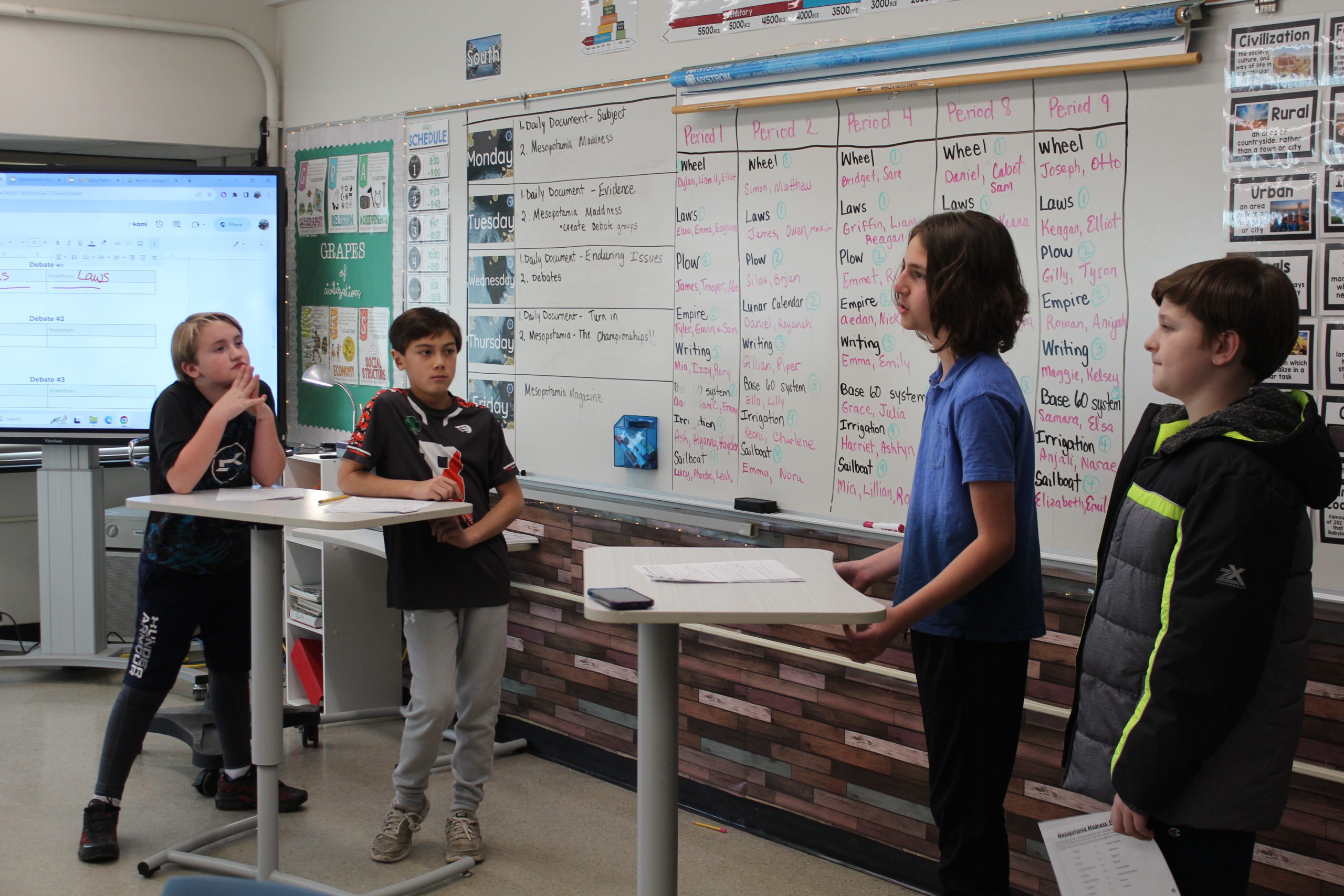
It may not be spring, but the spirit of March Madness was alive and well during the month of November thanks to a teacher who introduced “Mesopotamia Madness” as a way to engage sixth-grade social studies students about the birth of civilization.
Cara Qualia’s students competed in the bracket-style challenge learning all they could about some of ancient civilization’s most important milestones and inventions. The students researched 16 inventions and contributions to society and collaborated with their classmates to defend one of the 16 topics.
Classroom debates were centered around an “Elite 8” of the wheel vs. laws; the plow vs. empires; writing vs. the Base 60 calendar/time system; and irrigation vs. the sailboat.
In teams of two or three, students engaged in debates with one another at the front of classroom on how their invention changed history, what makes it significant today and how life might be different without it.
Students Otto Knaub and Joseph Hoogkamp squared off in Qualia’s period 9 class in a debate of the wheel vs. laws.
“The wheel made a big impact on society,” said Otto. “If we didn’t have the wheel we would have no transport; we wouldn’t be able to move heavier objects and create monumental structures.”
“We wouldn’t have factories to produce items because wheels are also gears,” said Otto’s teammate Joseph. “Gears can convert moving energy into literal energy.”
Defending the importance of law and order as necessary in society, Keagen argued, “If we didn’t have laws, people could do whatever they want and we would not be where we are today.”
In response, Joseph said without the wheel, “Well, vacation would be like walking a mile.”
Students voted anonymously based on the overall impact of the invention, following each round of debates.
In the end, it was a Final Four of laws vs. the plow and writing vs. irrigation. Irrigation was the winner of Mesopotamia Madness in Mrs. Qualia’s ninth-period class.
